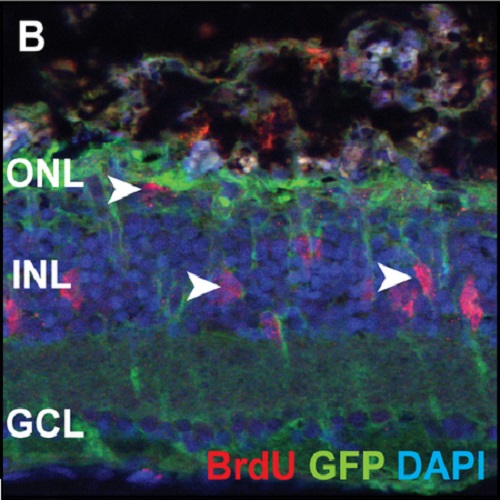Fgf signaling is required for photoreceptor maintenance in the adult zebrafish retina.
Fibroblast growth factors (Fgf) are secreted signaling molecules that have mitogenic, patterning, neurotrophic and angiogenic properties. Their importance during embryonic development in patterning and morphogenesis of the vertebrate eye is well known, but less is known about the role of Fgfs in the adult vertebrate retina. To address Fgf function in adult retina, we determined the spatial distribution of components of the Fgf signaling pathway in the adult zebrafish retina. We detected differential expression of Fgf receptors, ligands and downstream Fgf targets within specific retinal layers. Furthermore, we blocked Fgf signaling in the retina, by expressing a dominant negative variant of Fgf receptor 1 conditionally in transgenic animals. After blocking Fgf signaling we observe a fast and progressive photoreceptor degeneration and disorganization of retinal tissue, coupled with cell death in the outer nuclear layer. Following the degeneration of photoreceptors, a profound regeneration response is triggered that starts with proliferation in the inner nuclear layer. Ultimately, rod and cone photoreceptors are regenerated completely. Our study reveals the requirement of Fgf signaling to maintain photoreceptors and for proliferation during regeneration in the adult zebrafish retina.

- PLoS ONE 2012 Jan 26;7(1):e30365
- 2012
- Developmental Biology
- 22291943
- PubMed
Enabled by:
